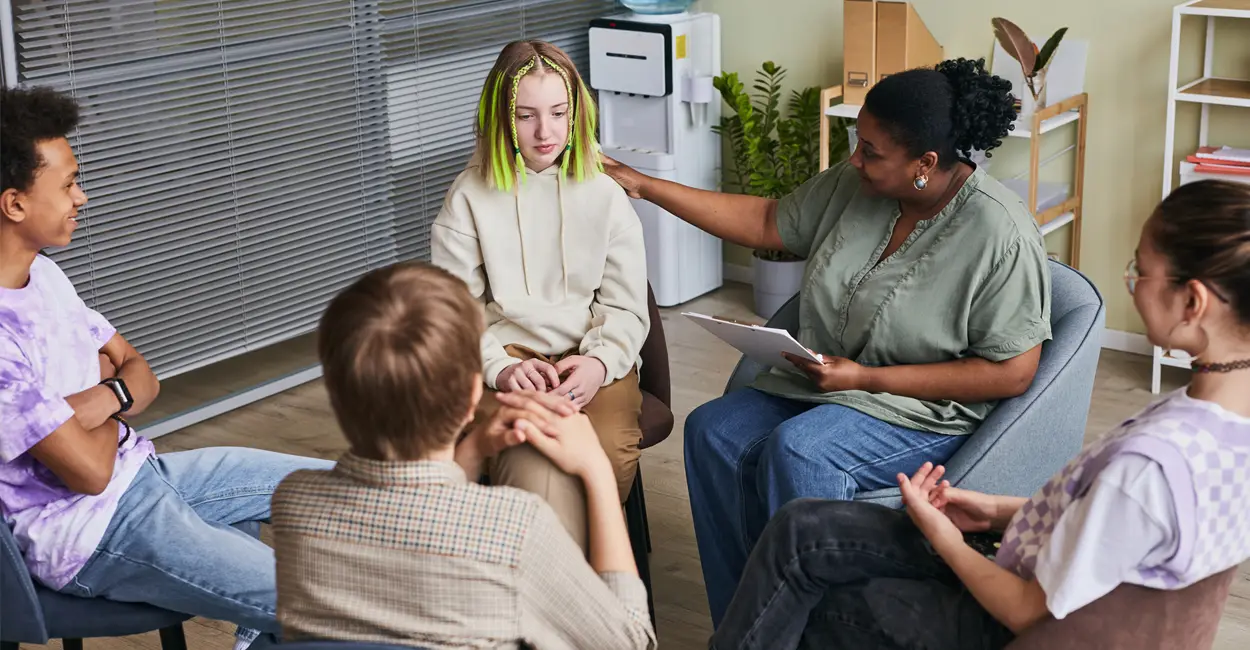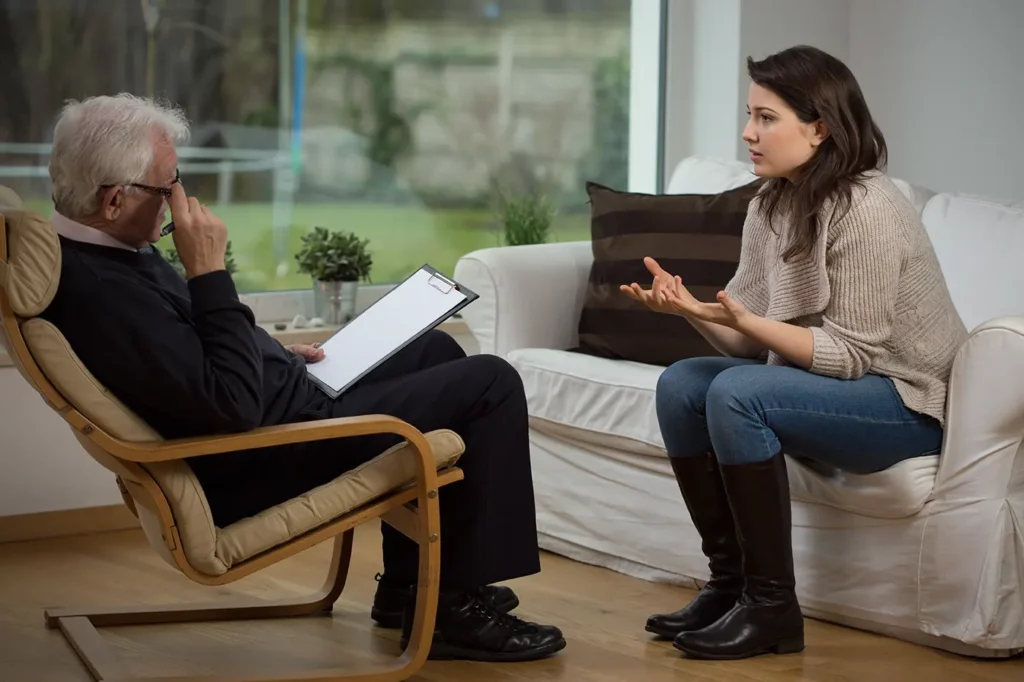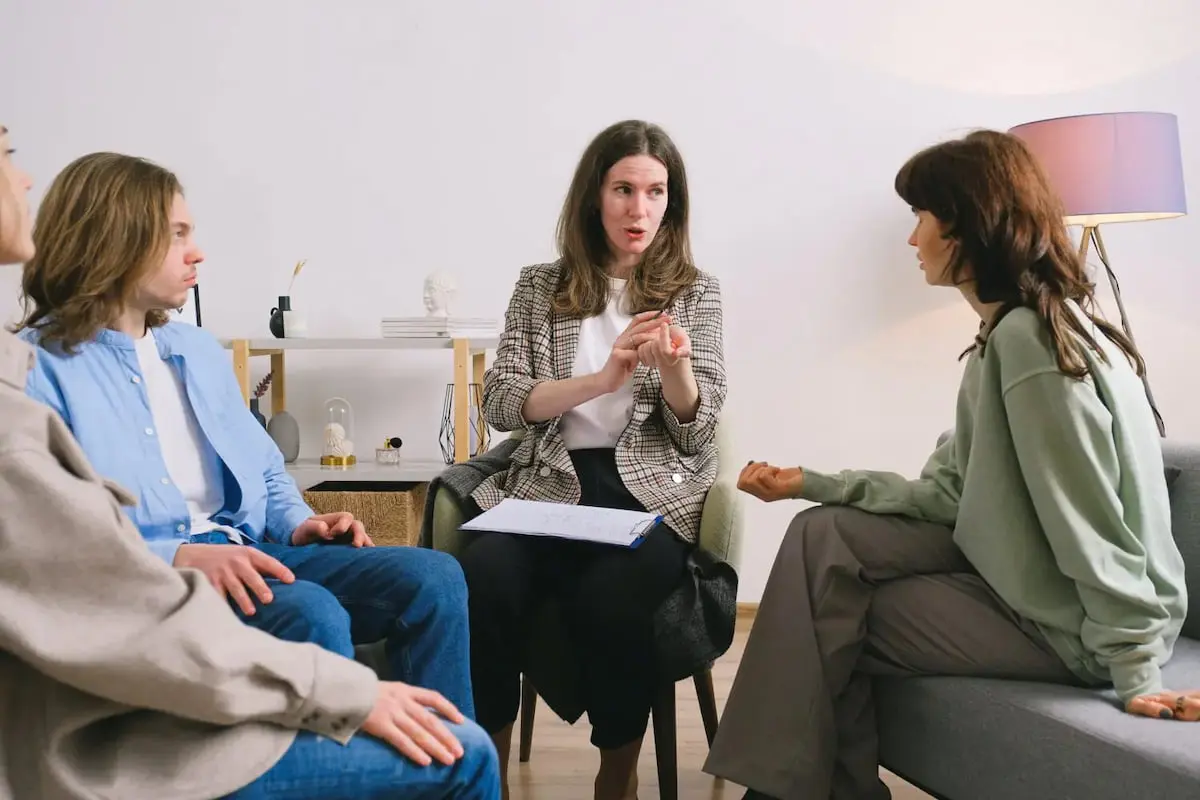24/7 Helpline:
(866) 899-221924/7 Helpline:
(866) 899-2219
Learn more about Couples Rehab centers in Hamilton County

Other Insurance Options

Anthem

Evernorth

EmblemHealth

Sliding scale payment assistance

Multiplan

Providence

Aetna

Horizon Healthcare Service

WellCare Health Plans

Private insurance

Lucent

WellPoint

Health Partners

Carleon

State Farm

Medical Mutual of Ohio

Molina Healthcare

Self-pay options

GEHA

Premera

The Salvation Army – Harbor Light
The Salvation Army, and international movement, is an Evangelical part of the Universal Christian Ch...

Evolve Indy
Evolve Indy is a rehab center that is situated in Indianapolis, Indiana. This addiction treatment ce...

Hickory Treatment Center at Indianapolis
Hickory House, located in Greenfield, Indiana, is a private drug and alcohol addiction treatment cen...

Landmark Recovery Indianapolis
Landmark Recovery Indianapolis is a private rehab located in Indianapolis, Indiana. Landmark Recover...

Recovery Centers of America at Indianapolis
Recovery Centers of America in Indianapolis is a private drug rehab center that specializes in treat...

Life Recovery Center East
Life Recovery Center East is a private rehab located in Indianapolis, Indiana. Life Recovery Center ...

Indianapolis Counseling Center
Indianapolis Counseling Center is an outpatient rehab located in Indianapolis, IN. Indianapolis Coun...

Options Behavioral Health
Situated in Indianapolis, Indiana, Options Behavioral Health is a mental health and addiction treatm...

Spero Health – Indianapolis
Spero Health – Indianapolis is a private rehab located in Indianapolis, Indiana. Spero Health – Indi...

Eskenazi Health Midtown – Outpatient
Eskenazi Health Midtown – Outpatient is a public rehab located in Indianapolis, Indiana. Eskenazi He...

Addiction Rehab Centers – ARC
Located in Indianapolis, Indiana, Addiction Rehab Centers offers alcohol and drug rehab services to ...

Aspire Indiana Health – Noblesville
Aspire Indiana Health offers substance use disorder treatment on an outpatient basis at all of its C...

Adult and Child Center – E. Ohio Street
Adult and Child Center - E. Ohio Street helps people live healthier lives and reach their goals. Ser...

Community Health Network – Warren Township
Community Health Network - Warren Township offers the most comprehensive behavioral healthcare syste...

Aspire Indiana Health – Indianapolis
Aspire Indiana Health offers substance use disorder treatment on an outpatient basis at all of its C...

Community Health Network – Community Hospital North Behavioral Health Pavilion
Community Health Network – Community Hospital North Behavioral Health Pavilion, located in Indianapo...

Sandra Eskenazi Mental Health Center
Sandra Eskenazi Mental Health Center, Indiana's first community mental health center, provides compr...

Warren Outpatient
Warren Outpatient is a private rehab located in Indianapolis, Indiana. Warren Outpatient specializes...

Agape Counseling and Human Services
Agape Counseling and Human Services is a private rehab located in Indianapolis, Indiana. Agape Couns...

Volunteers of America
Volunteers of America is a substance abuse rehab facility in Indianapolis, IN, that provides family ...

Franciscan Saint Francis Behavioral Health – East Southport Road
Franciscan Saint Francis Behavioral Health - East Southport Road offers outpatient and inpatient tre...

Fall Creek Counseling Services
Fall Creek Counseling Services is a private rehab located in Indianapolis, Indiana. Fall Creek Couns...

Indianapolis Treatment Center
Indianapolis Treatment Center is a private rehab located in Indianapolis, Indiana. Indianapolis Trea...

Hamilton Center
Hamilton Center, located in Indianapolis, Indiana, provides outpatient mental and behavioral health ...

Star Guides Wilderness
Star Guides Wilderness is a private rehab located in Indianapolis, Indiana. Star Guides Wilderness s...

Seeds of Hope
Seeds of Hope is a unique addiction recovery program for women over the age of 18. Seeds of Hope is ...

Aspire Indiana Health – Ward
Aspire Indiana Health offers substance use disorder treatment on an outpatient basis at all of its C...

Sandra Eskenazi Mental Health Center – N. Meridian St
Sandra Eskenazi Mental Health Center Adult Addictions Program is an outpatient facility located in I...

Oxford House Indy
Oxford House Indy is a non-profit house located in Indianapolis, IN. Oxford House Indy helps individ...

Woodview Psychology Group
Woodview Psychology Group is a private rehab located in Indianapolis, Indiana. Woodview Psychology G...

Pathway to Recovery
Pathway to Recovery is a rehab organization located in Indianapolis, IN. Pathway to Recovery special...

Wheeler Mission – Men’s Residential Center
Wheeler Mission–Men’s Residential Center provides faith-based, no-cost addiction recovery services f...

Community Health Network – Behavioral Health Services
Community Health Network offers mental health and substance use disorder treatment services for adul...

Fall Creek Counseling
Fall Creek Counseling is a non-profit rehab located in Indianapolis, Indiana. Fall Creek Counseling ...

Spero Health – Greenwood
Spero Health – Greenwood is a private rehab located in Indianapolis, Indiana. Spero Health – Greenwo...

The Relational Self Therapy
The Relational Self Therapy is a private rehab located in Indianapolis, Indiana. The Relational Self...

Meridian Health Services
Meridian Health Services - Willowbrook Parkway is a non-profit rehab located in Indianapolis, IN. Me...

Aspire Indiana Health – Progress House
Progress House is the state of Indiana's oldest and largest recovery residence. Progress House was f...


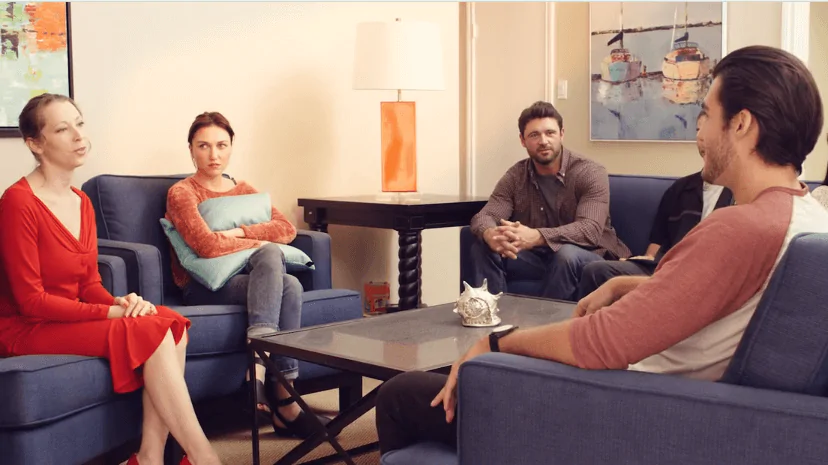

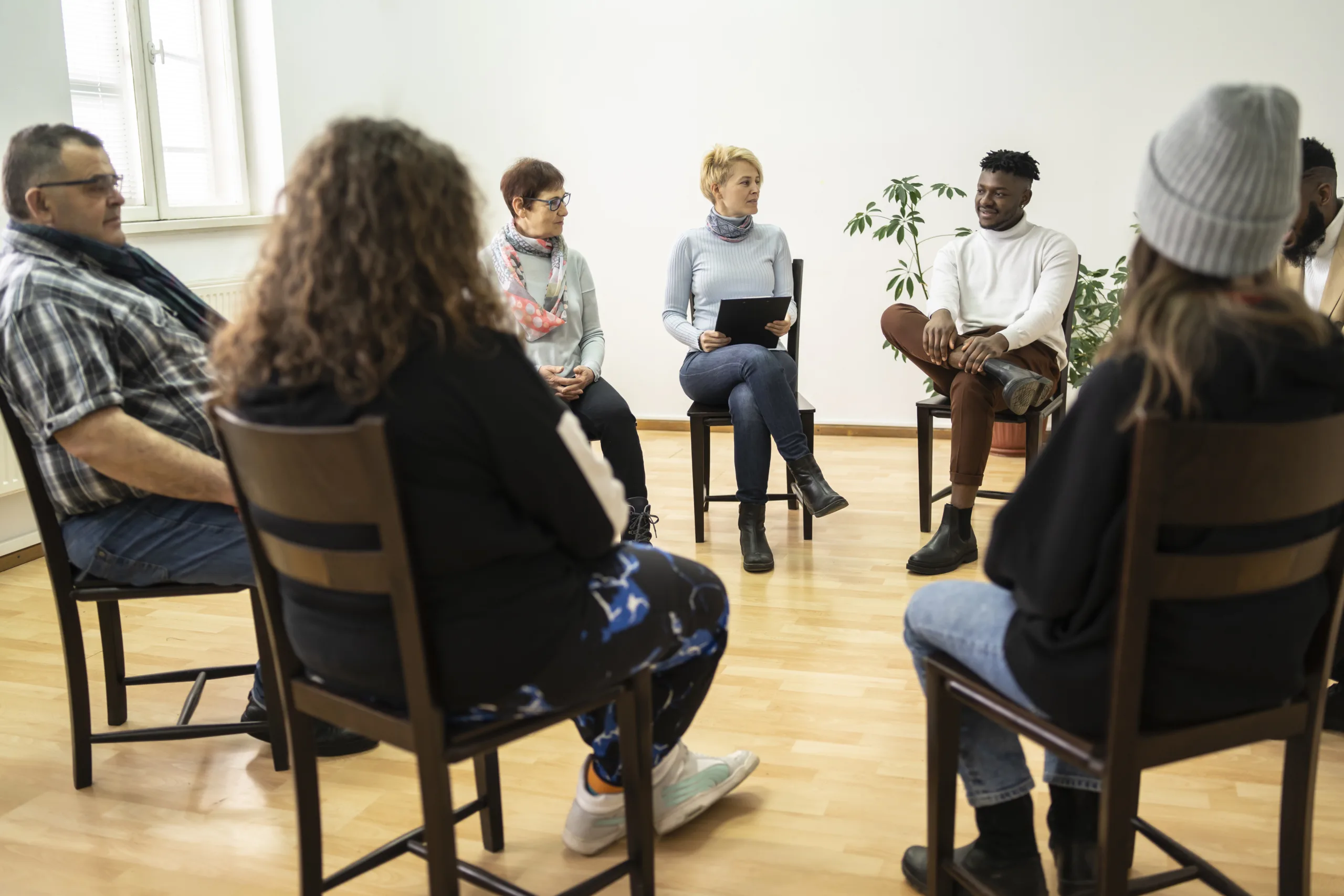






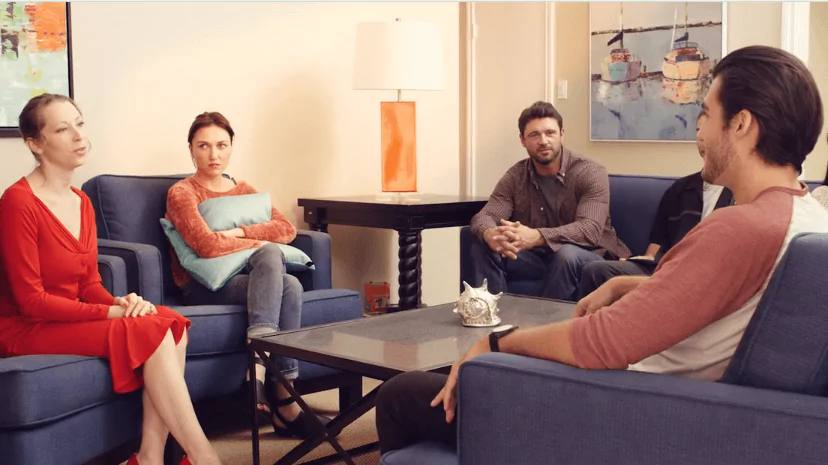































Broad Ripple Counseling Center
Broad Ripple Counseling Center is a private rehab located in Indianapolis, Indiana. Broad Ripple Cou...

IU Health Methodist Hospital – Behavioral Health
IU Health Methodist Hospital – Behavioral Health is a private rehab located in Indianapolis, Indiana...

Adult and Child Center – Siear Terrace
Adult and Child Center – Siear Terrace is a private rehab located in Indianapolis, Indiana. Adult an...

Adult and Child Center – Madison Avenue
Adult and Child Center - Madison Avenue helps people live healthier lives and reach their goals. Ser...

Resolute Treatment Center
Resolute Treatment Center (now called Resource Treatment Center) is a dual diagnosis mental health a...

Life Recovery
Life Recovery offers outpatient treatment for individuals with alcohol and/or substance addiction. T...

Serenity Counseling Services
Serenity Counseling Services is a private rehab located in Noblesville, Indiana. Serenity Counseling...

Midwest Counseling Associates
Midwest Counseling Associates is a private rehab located in Indianapolis, IN. Midwest Counseling Ass...

The Coleman Institute
The Coleman Institute is dedicated on providing a rapid detox to help those individuals detoxify fro...

Forum at the Crossing
Forum at the Crossing is a private rehab located in Indianapolis, Indiana. Forum at the Crossing spe...

Indy Cottage Counseling
Indy Cottage Counseling is a private rehab located in Indianapolis, Indiana. Indy Cottage Counseling...

Alpha Counseling Services
Alpha Counseling Services is a private rehab located in Indianapolis, Indiana. Alpha Counseling Serv...

Integrative Healing Enterprises
Integrative Healing Enterprises is a private rehab located in Indianapolis, Indiana. Integrative Hea...

Resource Treatment Center
Resource Treatment Center, in Indianapolis, Indiana, provides mental and behavioral healthcare servi...

Complete Provider Rehabilitation
Complete Provider Rehabilitation is a private rehab located in Indianapolis, Indiana. Complete Provi...

Volunteers of America – STRIVE Indy
Volunteers of America - STRIVE Indy is a Non-Profit organization located in Indianapolis, IN. Volunt...

Oficina Intergrupal Hispana
Oficina Intergrupal Hispana is a private rehab located in Indianapolis, Indiana. Oficina Intergrupal...

ASU Group Recovery Unlimited
ASU Group Recovery Unlimited is a private rehab located in Indianapolis, Indiana. ASU Group Recovery...

Families First
Families First is a non-profit rehab located in Indianapolis, Indiana. Families First specializes in...

Addiction Resource Network of Indiana
Addiction Resource Network of Indiana is a private rehab located in Indianapolis, Indiana. Addiction...

Aspire Indiana Health – Next Step
Next Step is a transitional housing program for residents of Progress House who have progressed far ...

Options Behavioral Health Hospital
Options Behavioral Health Hospital is a private rehab located in Indianapolis, Indiana. Options Beha...

Life Recovery Center – 16th street
Life Recovery Center – 16th street is a drug and alcohol treatment center that supports adults with ...

Pro Active Resources
Pro Active Resources is a private rehab located in Noblesville, Indiana. Pro Active Resources specia...




































